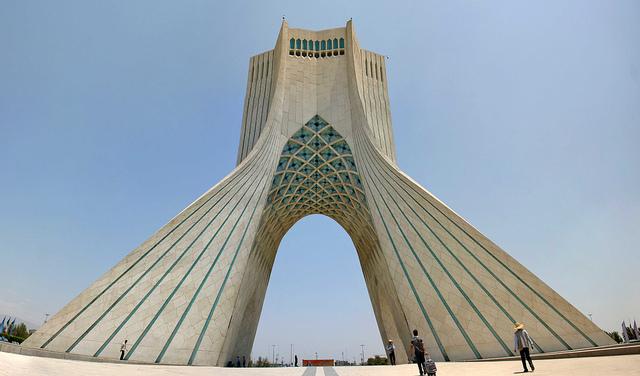The Iran nuclear deal: a diplomatic marvel
Posted By Ron Huisken on July 20, 2015 @ 15:16
Acquiring nuclear weapons is a difficult, costly and prolonged process. It’s also dangerous because adversaries will be tempted to strike before you succeed. States that embark on this path do so for what they consider to be utterly compelling national interests and are correspondingly reluctant to accept the sort of constraints that will restore confidence among other states that the interest in nuclear weapons has indeed been reliably quashed. This makes them among the most difficult issues to resolve through negotiations. Factoring in the extraordinary hostility between the US and Iran makes the 159-page agreement announced earlier this week almost unbelievable, a diplomatic marvel.
True marvels, however, are pretty scarce. What this agreement really signifies is that, behind all the belligerent posturing, a stronger mutual desire to change the status quo than either side is prepared to acknowledge eventually emerged. In other words, the key players eventually looked beyond their own to the core interests of others and took into account what other parties needed to sell the deal domestically.
Indications of Iranian interest in nuclear weapons reach back to the 1990s. The US endeavoured to make this an international issue but was blocked by Russian and Chinese opposition and, in the absence of a ‘smoking gun’, a lack of interest on the part of its allies and friends. Everyone was aware of the implacable hostility between Washington and Tehran since the Iranian revolution including, of course, the sacking of the US embassy and keeping American personnel hostage for over a year. Both sides remained vigilant to opportunities to damage the others’ interests. And since Iran was central to every political equation in the Middle East—Israel, Palestine, the Sunni–Shia and Arab–Aryan divides—the cumulative cost of this undeclared war has almost certainly been quite formidable.
The smoking gun appeared in 2003. Iran was a party of long standing to the NPT but was exposed as operating an undeclared uranium enrichment facility. The political atmosphere was intensified by the coincident US-led regime change in neighbouring Iraq (publicly justified by suspicions of WMD acquisition) and the breaking open, also in 2003, of the black market nuclear proliferation network operated by Pakistan’s AQ Khan, including the fact that Iran had been a major customer. Washington has since led the effort to dissuade Iran from joining the nuclear club.
The nuclear deal must still survive scrutiny on its merits. I believe it does so. The detailed agreement appears to fulfil the aspirational targets set out in April in respect of stockpiles of low enriched uranium, the capacity to add to this stockpile, the alternative plutonium pathway to bomb fuel and, above all, the inspection regime that Iran must live with over the coming decades. Once the IAEA confirms that Iran has established the baseline conditions specified in the agreement regarding uranium stockpiles and operational enrichment centrifuges, action will be taken in the UN Security Council to lift the current economic sanctions imposed on Iran. The agreement also provides for such sanctions to ‘snap back’ should Iran violate any of its terms.
When Iran was caught red-handed in 2003, it brazenly insisted that it had no case to answer because its nuclear activities were consistent with its intention to build and support a civilian nuclear power industry. Failing to disclose an enrichment plant may have been a technical breach, but in substance everything it was doing, and had done, was compliant with its rights and obligations under the NPT. There were indications that Iran set about erasing all evidence of an interest in nuclear weapons—including a large building in Tehran, and the topsoil on which it stood, that vanished without trace in the space of a few days.
In 2007, a US intelligence report concluded that Iran did appear to have shut down every activity associated with an active nuclear weapons program. For more than a decade, Iran rejected absolutely any suggestion that it would have to accept special restrictions on its nuclear activities and meet demands for an unusually high degree of transparency in order to rebuild confidence in its integrity. Negotiations stalemated repeatedly as Iran’s nuclear competencies grew, and as reminders that the use of force remained an option grew more frequent.
That pivotal stumbling block gradually fell away over the past couple of years. Iran ultimately conceded arrangements that are indisputably special (and subtly acknowledge that it had dabbled with a nuclear weapons program in the past) but at the same time protected the principle that it was entitled, under the NPT, to have a (safeguarded) uranium enrichment capacity.
Whether this agreement (assuming it gets up in Tehran and Washington) will also allow the US and Iran to begin to dilute the poisonous relationship that they have sustained since 1979 is an open question. It’s entirely possible that the nuclear deal involved ‘understandings’ to this effect that will be tested over the months and years.
It’s difficult to be genuinely optimistic since they embrace things like its stance on Israel, and its attitude toward its predominantly Sunni neighbours where Tehran has sustained a highly confrontational record that has taxed American ingenuity and resources. But the nuclear deal will certainly shift the ground under these issues and positive outcomes, beyond the deal itself, cannot be excluded.
Article printed from The Strategist: https://aspistrategist.ru
URL to article: /the-iran-nuclear-deal-a-diplomatic-marvel/
URLs in this post:
[1] Image: https://aspistrategist.ru/wp-content/uploads/2015/07/5892554580_91a978c200_z.jpg
Click here to print.
